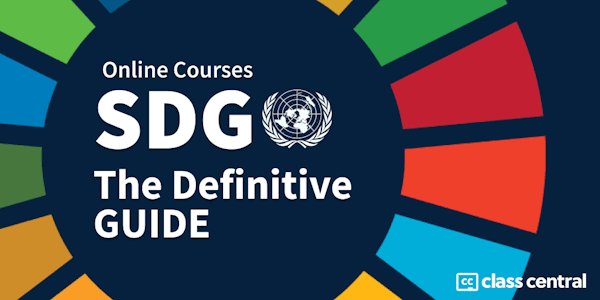In this course, you will explore the history of LGBTQ identities, experiences, and activism. We’ll study major events in global LGBTQ history, investigate local histories of queer and transgender people and communities, and consider how LGBTQ histories have helped shape broader conversations about civil rights, equality, and justice.
Queering Identities: LGBTQ+ Sexuality and Gender Identity
University of Colorado System via Coursera
-
1.0k
-
- Write review
Overview
Syllabus
- Introduction to Queering Identities
- Learn and get to know your instructors that will guide you in this course.
- Terminology and Key Concepts
- This module provides an overview of the terminology and definitions we will be using throughout the course and establishes a plan of action for learning from and with each other as we put the terminology into practice. We will discuss regional and local variations in terminology and language use, and learners will research and identify local applications of LGBTQ+ terminology. Learners will draw on their knowledge to discuss the current state of LGBTQ+ inclusion in their context.
- The Fiction of the Gender Binary
- In this module, we explore the concept of gender as a social construct and consider how all of us learn about and reinforce or resist gender norms. We’ll look at some strategies for creative resistance to socially constructed beliefs about gender and also consider the experiences of transgender people as they transition into a new gender identity.
- Sexual Difference?
- This module extends the exploration of social constructs to consider how sex and sexual identities have been socially constructed. We critically examine the common presumption that sex is biological, or natural. We draw on the experiences of intersex and transgender communities to consider an alternative approach to understanding sex. Then we introduce the idea of sex as a social construct that is intimately tied to, but is distinct from, gender.
- A Sexual History
- This module considers sexuality and sexual identities as social constructs, exploring how cultural norms about sexuality and sexual attraction have been developed and used to regulate human behavior. We introduce queer theory as a framework for analyzing the impact of norms about gender, sex, and sexuality on our lives and communities, and we invite participants to practice applying a queer framework to their own lives and experiences.
- Queering Issues
- In this module, we explore some contemporary LGBTQ+ issues, drawing on queer theory to understand and interpret those issues. This module takes on: The bathroom issue: how to (re)design public restrooms and locker room for transgender inclusion; Racism and whiteness in LGBTQ+ communities; Queer(ing) religion: A history of conflict and reconciliation; Queer parenting: A case study of one queer family; and Queering sex education: An LGBTQ+ inclusive approach to sexuality curricula.
Taught by
Jacob McWilliams, K. Mohrman and Daryl Boyd
Tags
Reviews
5.0 rating, based on 3 Class Central reviews
4.8 rating at Coursera based on 701 ratings
Showing Class Central Sort
-
This is a highly insightful course on being on the loop in current sexuality and gender identity issues. To understand and contribute favorably in addressing the challenges and concerns faced by LGBTQ+-identifying members of society, we must hit the ground running by learning the relevant lexicon, its history and its implications - and this course delivers in that regard. The material may hopefully inspire the learners to know themselves better on these issues and in doing their own way to make the world a more accepting place.
-
I gave the course 5 stars as I didn't think there was anything wrong with it, but for me it was much to basic and entry level. I have been apart of the LGBTQIA+ community for many years now, and I think this course was designed for people who have a limited knowledge and understanding.
-
Great introductory course to some of the aspects of queer theory. Although I do not personally agree with some of the ideas in the course, they were presented in an open-ended fashion with ample room to think critically. Changed my perspective on gender and sexuality.





